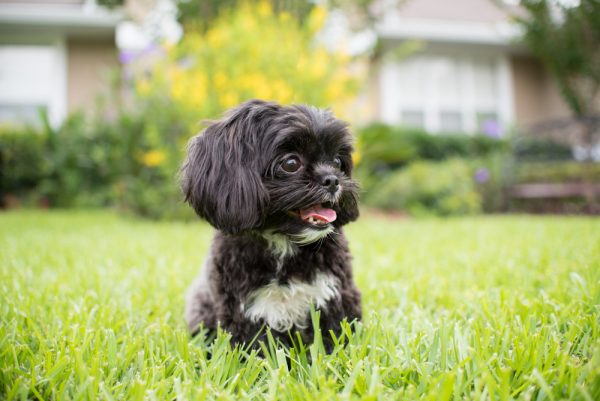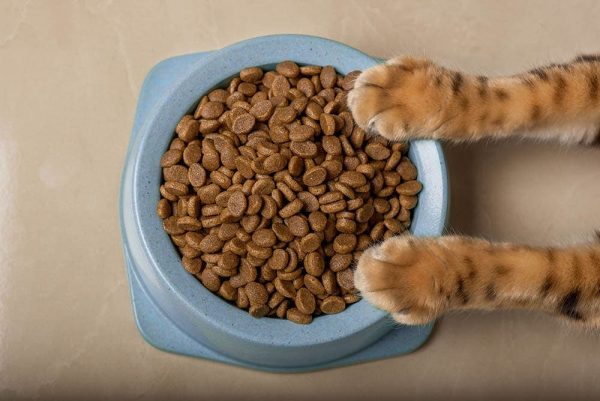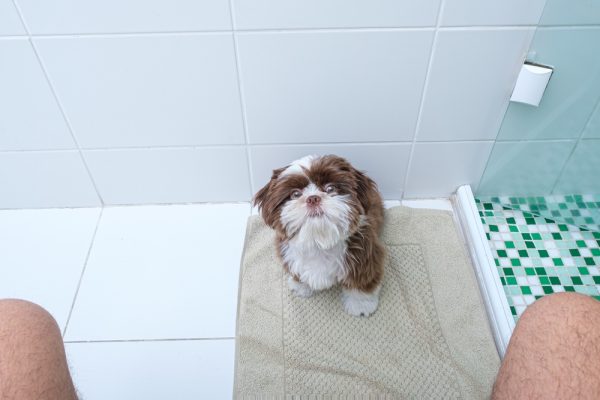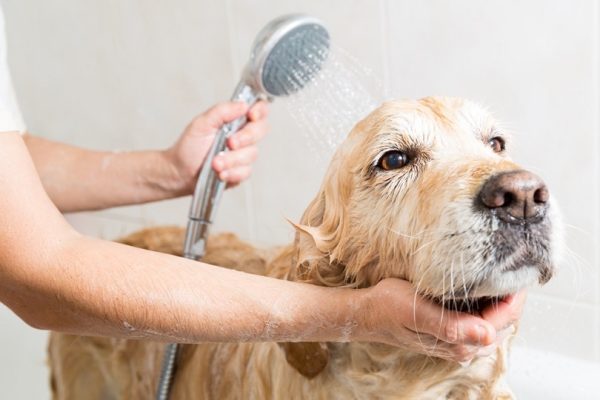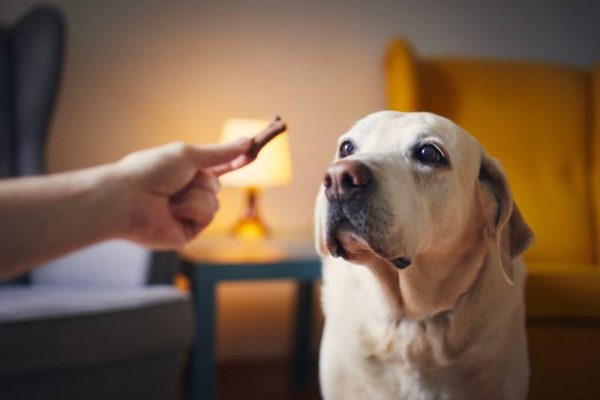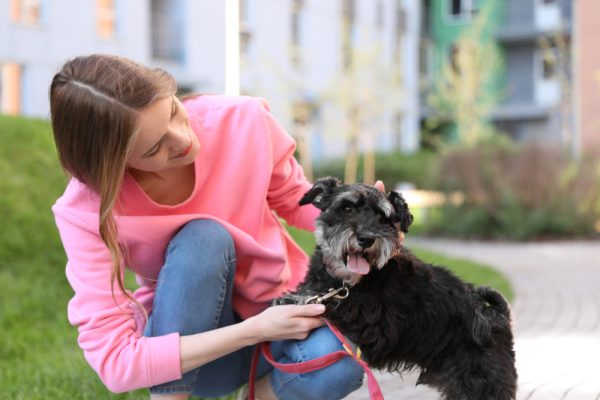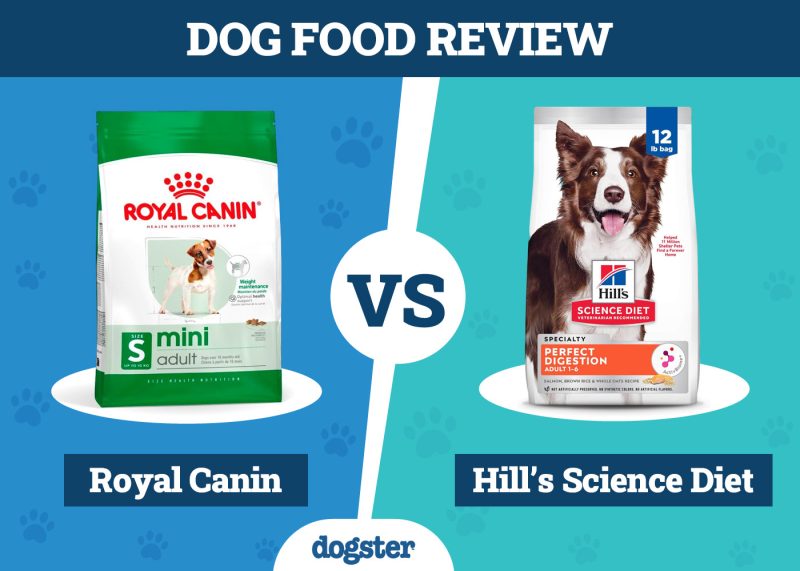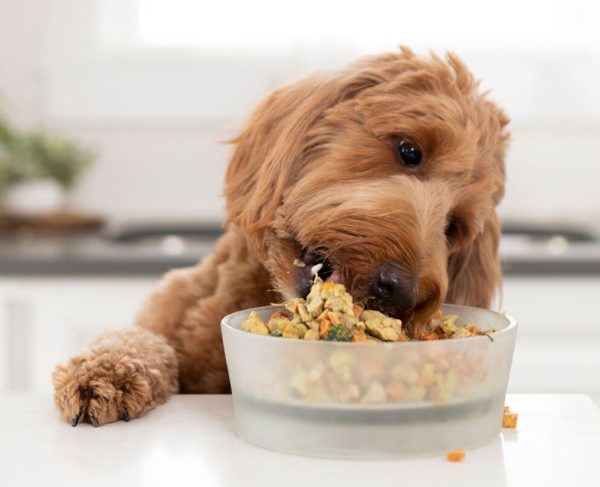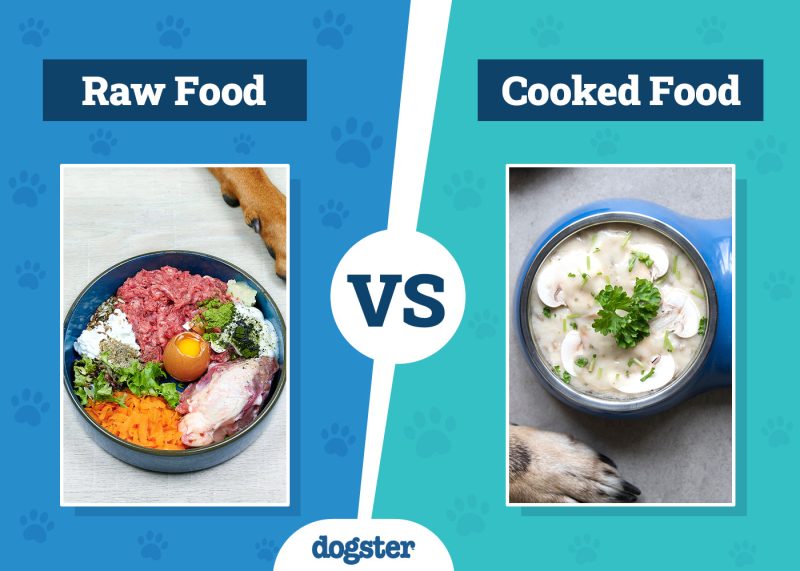In this article
View 8 More +As the name suggests, the Chi-Poo is a mix between a Chihuahua and a Poodle—usually a Toy or Teacup size. These two breeds are very different from each other, so they often produce puppies that vary quite a bit, too.
Breed Overview
Height
7–12 inches
Weight
8– 18 pounds
Lifespan
12–15 years
Colors
Chocolate, gray, black, fawn, white, brindle, brown
Suitable for
Smaller families: those looking for an active, smaller dog
Temperament
Devoted, energetic, intelligent
Because the Chi-Poo is a mixed breed, it is difficult to determine how a particular puppy will turn out. However, there are a few traits that they typically inherit. We’ll discuss everything you need to know about these tiny puppies in this article, including their exercise needs and temperament.
While Chi-Poos are smaller, they are not necessarily easier to care for than other dogs. Their temperament and exercise needs can make them one of the more difficult breeds, so we typically only recommend them to experienced dog owners.
Chi-Poo Characteristics

Chi-Poo Puppies
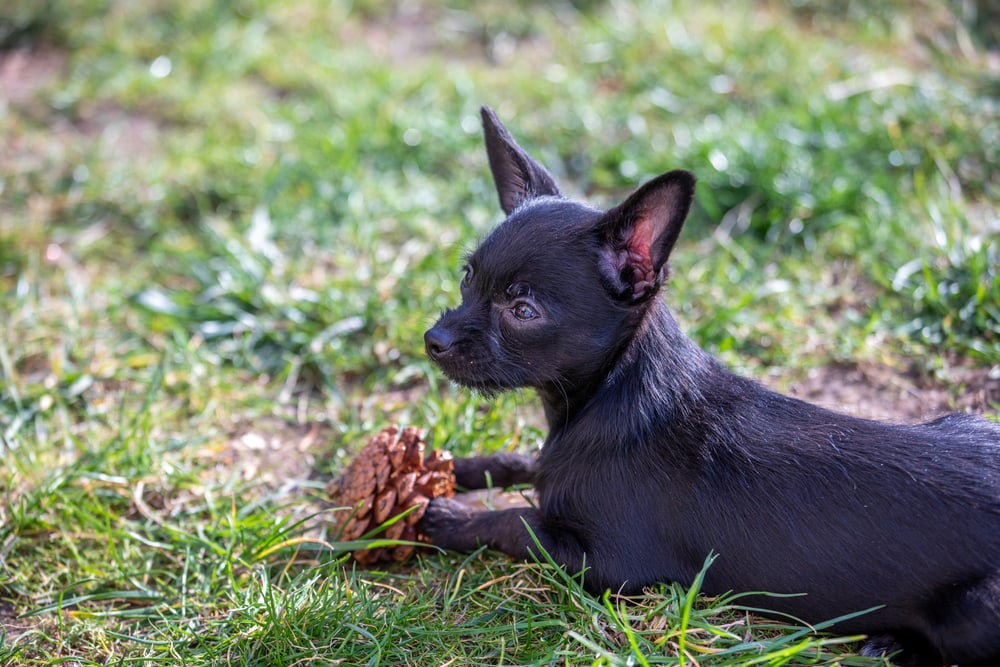
It can be difficult to find Chi-Poo puppies. Most of the time, they are the result of accidental litters. In those cases, the dogs may be very cheap. You may even be able to get them for free. However, some breeders may specialize in these dogs as well. They typically run health tests on the parents before breeding and have veterinarians examine the puppies. Breeders often take care of the puppy’s first vet visit and begin vaccinations.
You may be able to find a Chihuahua Poodle mix in an animal shelter. Typically, these organizations are not-for-profit. Most of the time, they only charge by the care that the dog needs to receive. Puppies are often more expensive, as they require vaccinations and similar care at the shelter. Many are also prone to parasites and similar conditions, which the animal shelter will pay to treat. If the dog needs to be spayed or neutered, this may be added to the adoption price.
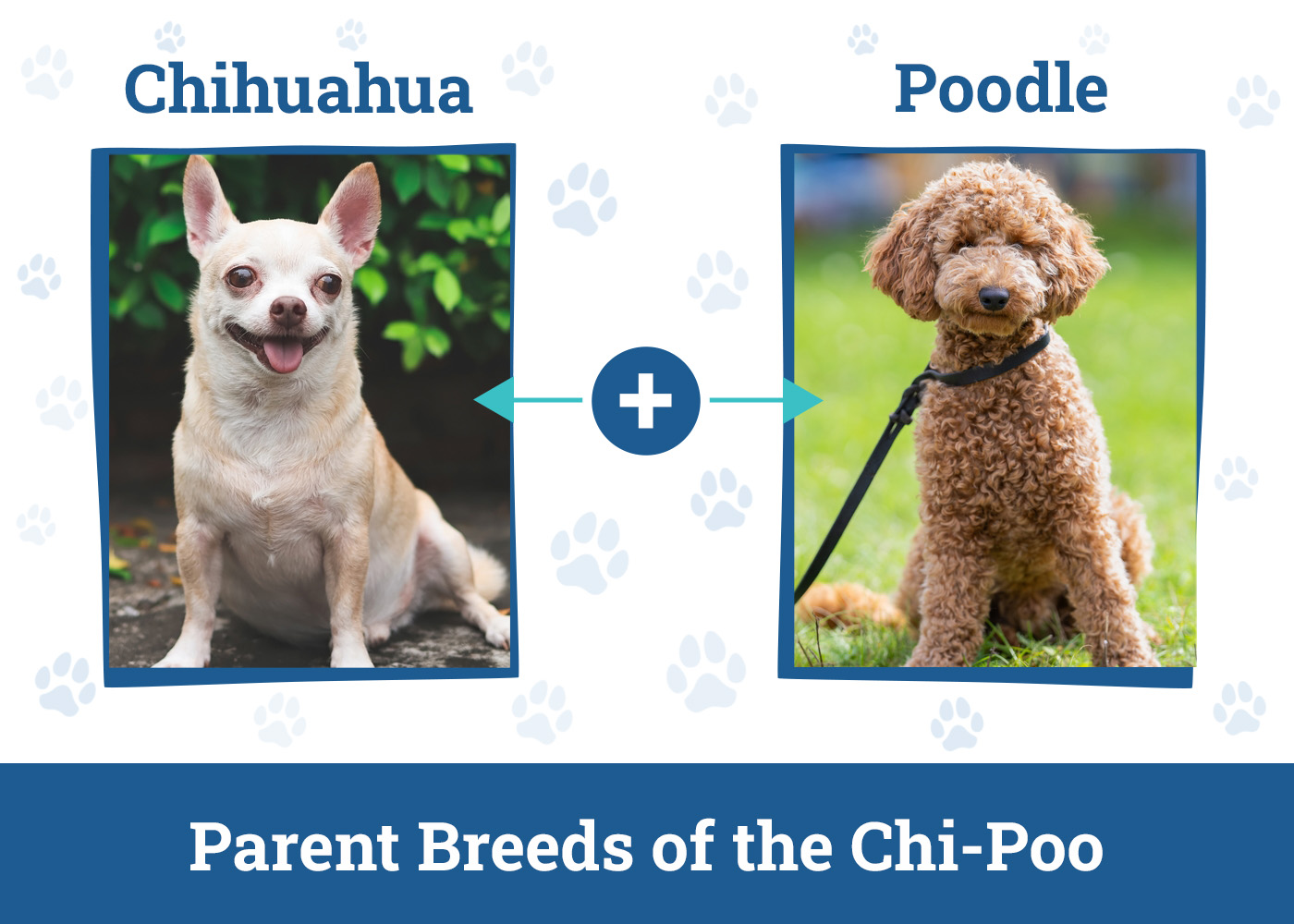

Temperament & Intelligence of the Chi-Poo
Chi-Poos are people-oriented and tend to be very devoted. However, they may not be very friendly with strangers. They are known for being one-person dogs in many cases, which means that they will bond closely with a single person and pretty much ignore everyone else.
Therefore, they aren’t the best option for families. They can also be protective of their owners. Many bark excessively and act tough when strangers come by. They can be pretty yappy, which makes them great as watchdogs. However, they also need extra socialization to ensure that they are accepting of strangers when guests come to visit.
Chi-Poos are known for being possessive of their people. Sometimes, they can be a bit too protective, which is why socialization is so important. While they aren’t large (and therefore not dangerous), that doesn’t mean that you should put off socializing them.
With the people that they’ve chosen, they are extremely affectionate but prefer to play over cuddling. However, they will cuddle after they have had their exercise needs met. They can be pretty active, especially when they are young. They may not be the best option for those simply looking for a cuddly dog.
Because these dogs are half Poodle, they are intelligent and can learn commands very easily. However, they will also need quite a bit of mental stimulation. You’ll have to work with them consistently to ensure they do not become bored. If they are not challenged mentally, they may start showing destructive behaviors. They will try to make their own fun, which often involves tearing something up.
Be sure you have enough time to devote to the Chi-Poo’s mental stimulation needs before you adopt them. This can include puzzle toys, training, or competing in canine sports.
Are These Dogs Food for Families? 👪
Chi-Poos can be good for families. However, they tend to be one-person dogs. They bond closely with one person to the exclusion of everyone else. This tends to happen no matter what genes they inherit, as both the Poodle and Chihuahua are prone to this trait. However, some dogs may not be as selective and can thrive in a family. They may take time to warm up to children and must be supervised when interacting with them.
Does This Breed Get Along with Other Pets? 🐶 😽
With the proper socialization, Chi-Poos can get along with other dogs. However, they may be too protective to get along with other dogs if they are not socialized correctly at first. It is essential for your dog to be introduced to several dogs at a young age.
We recommend puppy classes. These provide training and socialization—two things these canines absolutely need. Due to their higher prey drive, Chi-Poos aren’t the best option for a home with felines. They are prone to chasing cats, which isn’t always something you can correct with socialization. For that reason, we recommend avoiding them if you have a cat. Some Chi-Poos may get along okay with cats after extensive socialization. However, others won’t.
It largely depends on the traits a dog inherits and their personality.

Things to Know When Owning a Chi-Poo
Food & Diet Requirements 🦴
Chi-Poos don’t require a special diet and can thrive on a small-breed formula. Because they are smaller, they are much cheaper to feed than other dogs. This makes it easier for you to afford high-quality dog food, which we recommend. You should avoid dog foods with high amounts of fillers and low-quality ingredients.
Keeping a Chihuahua Poodle mix at the correct weight is important. They aren’t necessarily prone to obesity. However, dogs can become obese without eating properly or exercising enough. This can cause serious problems later on. Obesity is linked with several health problems and can shorten your dog’s lifespan considerably.
Purchasing higher-quality food can help your dog avoid health problems later on. Therefore, it may cost you more upfront but save you more in the long run.
Exercise 🐕
While they may be small dogs, Chi-Poos need plenty of daily exercise. Luckily, they are smaller, which makes them considerably easier to exercise than other breeds. After all, a step for you is quite a few steps for them. Therefore, they don’t need that many miles each day.
Usually, they only need a mile-long walk a few times a day and play sessions in the yard. You can’t simply leave your dog in the backyard and expect them to get enough exercise, though. Instead, you’ll need to actively engage with them to ensure that they get enough exercise.
Without enough exercise, your dog can become overweight. This can cause significant issues. Because they are smaller, even a few extra pounds can take a toll. Obesity isn’t just related to exercise. Nutrition and underlying health conditions can also play a role. However, it is important to ensure that your canine exercises to ensure that they maintain a healthy weight.
Training 🎾
In most cases, Chi-Poos are moderately easy to train. They are devoted to their people and intelligent, but some dogs can be prone to periods of stubbornness. This can make training frustrating. Your dog may quickly learn what you want them to do but then not follow commands in a real-life situation.
Luckily, the Chihuahua Poodle mix is not as stubborn as other dogs. Due to their higher intelligence, they need quite a bit of mental stimulation. Training is an easy way to accomplish this. They learn commands quite fast, so you may have to start getting creative with the commands you teach. We recommend starting with practical commands, such as sitting and staying, before moving on to tricks. However, they’ll enjoy learning advanced tricks after they’ve mastered the basics.
The Chi-Poo is a great candidate for learning a reliable recall. They are not easily distracted by prey animals or other people, so they will return to you when called. Of course, this requires some extensive training. But you will be providing mental stimulation, so you really won’t be spending that much extra time training them.
Grooming ✂️
The Chi-Poo’s grooming needs can vary widely. Some may require professional grooming, especially if they take after their Poodle parent. However, professional grooming will only be necessary every few months. Brushing once a week with a pin brush is all you need to prevent matting and tangling.
The only exception is if you let the dog’s hair grow longer. The longer their hair, the more daily upkeep they need. Poodles with show cuts need to be brushed every day. As you can likely guess, brushing is the best way to prevent mats. However, it also helps spread your dog’s natural oils through their coat, which helps their skin and coat stay healthy.
Some Chi-Poos will not shed at all, like their Poodle parents. Others may shed the same amount as a Chihuahua. They may even have Chihuahua-like hair. You never know what you’ll get when you mix two breeds. Therefore, adapting your dog’s grooming routine to their needs is crucial. Your Chihuahua Poodle mix may also be considered hypoallergenic thanks to their Poodle parent.
Chi-Poos need their teeth cleaned and their nails trimmed regularly. Both are important for your dog’s health and wellness. However, they are often overlooked. Periodontal disease affects 80% of dogs over the age of three. Preventative brushing is essential to prevent costly surgeries later on.
Health and Conditions ❤️
Like most mixed breeds, the Chihuahua Poodle mix is pretty healthy but is prone to a few health conditions. Patellar luxation is one of the most common conditions they are prone to. This is mainly because most smaller breeds are affected by this condition.
They can also be prone to glaucoma, which is a problem with eye pressure that can cause many issues. In some cases, it may lead to permanent blindness since the eye becomes damaged due to the increased pressure. Typically, surgery is required for this condition.
Hypoglycemia is common with very small dogs. This likely won’t affect this mixed breed, as they are usually at least 8 pounds. However, the smaller they are, the more difficult it will be for them to maintain their blood sugar. Smaller dogs will need more frequent meals to ensure that their blood sugar does not drop too far. This can cause everything from fatigue to seizures.
Occasionally, Chi-Poos may also have minor skin problems. These typically aren’t much of a big deal at all. They may be tied to food allergies and similar problems in most cases. Other times, they can develop dry skin. Diet changes can help, but you may need to speak with your vet about other potential fixes. Supplements may be necessary for some situations.
- Skin allergies
- Patellar luxation
- Glaucoma, hypoglycemia
Male vs. Female
There is no significant difference between the sexes. The only difference that will affect every puppy is the difference in price between neutering or spaying them. Females are typically much more expensive to sterilize since they require more invasive surgery. How big this difference is can vary. In some offices, it may only be an extra $50 to sterilize a female. In other cases, it may be an extra $200.
Because Chi-Poos are rare, you may be unable to choose the gender, anyway.

3 Little-Known Facts About the Chi-Poo
1. They Can Be Quite Active.
While Chi-Poos are small, they aren’t exactly lap dogs. They are pretty active and need more than a bit of exercise. Many are also very playful and enjoy cuddling after they exercise thoroughly. If you’re looking for a breed that will cuddle all day, this is not it.
2. They Are Somewhat Rare.
Chi-Poos are not very popular, and not many breeders specialize in this particular mix. In many cases, it can be difficult to find them. You’ll likely have to search for them for quite a while, so don’t plan on adopting one immediately.
3. You Never Know What You’re Going to Get.
Chi-Poos can inherit genes from either of their parents, meaning they can act or look like a Poodle or a Chihuahua, but you’ll only find out by watching them grow.

Conclusion
The Chi-Poo is an interesting mixed breed. They often become very attached to a specific person, but some can happily live in a family home. Socialization is very important. Otherwise, they may get somewhat aggressive if someone else interacts with “their” person.
However, they are also intelligent. They can learn commands easily and are very devoted to their people. They can be very affectionate, though they also have high exercise needs. This means that they are very playful, especially when they are younger.
Looking for more crossbreeds? We have lots of both Chihuahua Mixes and Poodle Mixes for you to explore!
Featured Image Credit: Vincent Scherer, Shutterstock


